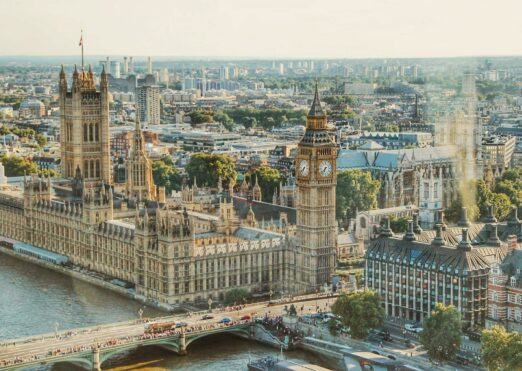Framing modern slavery protections through immigration lens puts survivors and justice at risk
November 25, 2025
Justice & Care and 13 other leading charities have issued an urgent warning to the UK Home Secretary over proposed changes to modern slavery legislation within the government’s new asylum and returns policy.
In a new letter, the organisations caution that framing modern slavery protections through an immigration lens risks diverting focus from safeguarding, weakening accountability for traffickers, and stopping victims from being identified and supported. Around 122,000 victims are estimated to currently be in exploitation in the UK alone.
Under the proposals, survivors who fail to disclose their exploitation immediately could be deemed less credible, while fears have been raised that whole cohorts of survivors could eventually be excluded from accessing support.
Legislation intended to protect the vulnerable was ‘never intended to be treated as an extension of border control’ and could ‘undermine the very purpose’ of the Modern Slavery Act 2025, 14 CEOs who have signed the letter say.
Currently, Home Office guidance recognises that disclosure of modern slavery is rarely instant. Trauma, fear of reprisals, distrust of authorities and systemic barriers often delay victims from speaking out. Yet the new policy would penalise late disclosure; a paper detailing the changes notes that disclosure just moments before a removal flight is scheduled would be seen as an indication of abuse of the immigration system.
This approach would ignore the government’s own guidance and risks silencing victims permanently. Deporting survivors before they can give evidence to police means fewer are likely to testify against traffickers – allowing exploiters to escape justice and continue preying on others.
The 13 charities are calling on the government to provide support for victims in immigration detention that will enable safe and trauma-sensitive disclosure of exploitation and follow statutory guidance about the impact of trauma and the barriers to disclosure.
The letter to Home Secretary, Shabana Mahmood, reads: ‘Many survivors will not be able to recount events coherently on first contact with authorities. Some do not recognise themselves as victims, others have been threatened.
‘The Home Office’s own guidance currently recognises that disclosure is a process, not an instant event. If the revised screening processes and reasonable grounds test are applied in a way that expects immediate narrative clarity, the most traumatised individuals become the least likely to be recognised.’
The government’s pledge to offer clarification of international obligations has also created worries that further legislation may soon restrict which survivors qualify for support, further threatening the UK’s commitment to safeguarding victims and prosecuting traffickers.
It is crucial that ministers ensure any new modern slavery legislation will underline the safeguarding and criminal justice purpose of the Modern Slavery Act and maintain a case-by-case approach to eligibility.
Justice & Care, and other organisations involved in the letter would welcome the opportunity to meet with Ms Mahmood to discuss how the United Kingdom can uphold both the integrity of the Modern Slavery Act and the Government’s wider objectives without reducing access to protection for those who need it most.
The letter is signed by leaders from: Justice & Care, Unseen, the Medaille Trust, AFRUCA Safeguarding Children, Hestia, Causeway, The Snowdrop Project, The Anti-Slavery Collective, Palm Cove Society, Ashiana Sheffield, SJOG, Hope for Justice and BCHA, Rebekah Lisgarten, CEO, Stop the Traffik.
You can read the full letter here.


